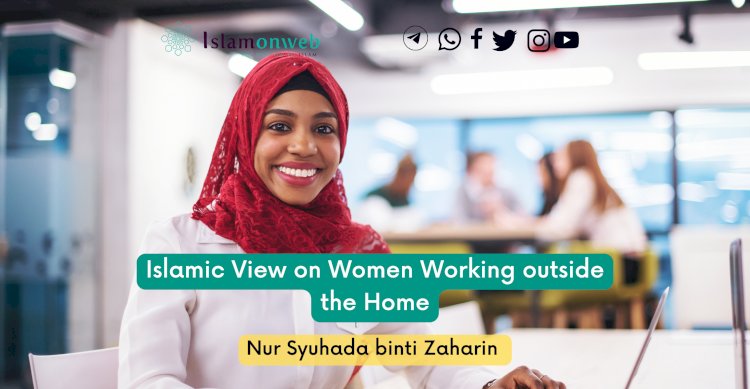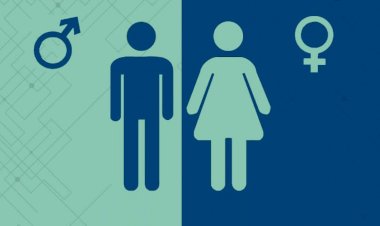Islamic View on Women Working outside the Home
Introduction
The process of urbanization and modernization had a great impact on the role and status of women. Due to these processes, the role of women began to change which led to the involvement of work outside the home. Compared to women in the past they had no need to work outside the home and their duties were just limited inside their home. The issue of working women has been the subject of debate and controversy for many years. Many people said that working wives have led to the occurrence of social problems in family institutions including neglecting certain rights and obligations, which can have a detrimental impact on the family structure. The objectives of this article are to highlight the rights or equality of women whether they are supposed to work or not. And second is to highlight the problems that happened if the wife’s work and the ways to overcome the problems through the view of Maqasid Shariah.
Women in Islam
From an Islamic perspective, woman’s work can be permitted, preferable, or compulsory. In addition, women also have the freedom to choose whether to work or to abstain from work. However, women are prevented to work if it is harmful to them and not compulsory to work if their expenses are borne by their husbands or father or brother, or any other person who has responsibility for them. It is because she was under her husband’s or father’s responsibility to cover her expenses whether they were rich or poor. Besides, if their intention to work is to neglect their obligations as a wife or a mother then working is not permissible for them, but prohibited. But for certain conditions, the women may be allowed to work such as in fields related to Fardh Kifayat which means a legal obligation that must be discharged by the Muslim community as a whole such as doctors, educators, and so on. There are some guidelines to follow by the women in order to work such as getting the husband’s permission before going out. Islam restricts women from engaging in physically demanding jobs if they are harmful to them or others as these tasks are deemed unsuitable due to women's nature, physical abilities, and psychological readiness.
Aspects of gender equality in various aspects of life.
There are some countries that still discriminate against women, including not allowing them to work (S.Shanthi & Kakarla Sai Mitravinda, 2022). But in Islam, there is no difference between men and women in terms of public rights; the only exception is that some obligations are reserved only for men due to the necessity of life, the public interest, the interest of the family, the interest of the woman herself, and the nature of each. Islam has established equality between men and women in five significant areas such as civil rights, right to education, right to work, liability and punishment, and the shared value of humanity. Meanwhile, Allah SWT has established several aspects that differentiate between men and women based on their abilities and nature. Among them is the difference between men and women in some religious responsibilities for example women are absolved from the prayer which is a pillar from the pillars of Islam during the menstruation period. Many other things differentiate them such as economic burdens, inheritance, testimony and the right to divorce. This gender equity achieved one of the SDG goals which are to ensure women’s full and effective participation and equal opportunities for leadership at all levels of decision-making in political, economic and public life (Md Supi, 2017).
The gender roles in Islam are perceived as complimenting each other, not on the superficial painting of gender equality.
The Problem and Solutions from the Maqasid Shariah
Working women have to face such as their busy schedules and inability to balance work and family obligations, which are the main causes of issues in the home. Among the problems when the wife works are domestic violence, children's social problems such as neglected studies, lack of love, rebellion, adultery, and many more. This is because the children lack love from their mothers because of the nature of a child who needs a mother's love. Likewise, a husband needs support from a wife in managing the household. Besides, the rise in women's employment outside the household is correlated with an increase in divorce rates (Levitan & Belous, 1981). Divorce occurs due to many reasons and one of them is when a working wife realizes that she is capable of being a competent provider, it may lead to a higher likelihood of her opting for divorce instead of staying in an unhappy marriage.
In order to overcome the social problems that happen in the family, let’s explore the solutions from Maqasid Syariah to enlighten these problems. The application of good religious education in a family, especially in matters of aqidah and ibadah, is very important to ensure that family members do not get involved in social problems. Therefore, in order to protect the religion, it is important to protect the family from engaging in abominable actions (Syafini et al., 2020). Secondly, from the aspect to protect the lineage, the parents need to ensure that their children do not do things that destroy the lineage such as adultery. Therefore, love and care are very important to ensure that this kind of thing does not happen. (Women and the Sustainable Development Goals (SDGs, n.d). Thirdly, as we know the purpose of a working wife is to take care of wealth, but it must follow the conditions as explained above to ensure that the family is not neglected and prevent the occurrence of divorce. So, from the light of Maqasid Shariah, definitely, that was the best way to overcome the issues. If there is a conflict between protecting wealth and protecting religion, the latter should be prioritized (Husni et al., 2015). This is because the protection of religion is given precedence since it leads to eternal happiness, which can be achieved via safeguarding one’s soul, mind, or wealth.
Conclusion
The issue of working women is not the main cause of the increase in social problems. This is because there are working women who manage to create a happy household. gives freedom to women to work as long as it complies with the line in religion. Therefore, it is important to have a good knowledge of the rights and duties to manage their family institutions.
References
Husni, A. M., Nasohah, Z., Mohd Nor, A. H., & Adib Samuri, M. A. (2015). Family Problems - Wife’s Work - and Its Solution in the Light of Maqasid Shariah. Asian Social Science, 11(18).
Levitan, S. A., & Belous, R. S. (1981). Working wives and mothers: what happens to family life? Monthly Labor Review, 104(9), 26–30. https://www.jstor.org/stable/pdf/41830815.pdf?refreqid=excelsior%3A3673ecc560f1df7c4123b0057f5d5e39&ab_segments=&origin=&initiator=
Md Supi, S. S. (2017, September 6). Maqasid Syariah Dalam Kekeluargaan. Laman Web Rasmi: Institut Kefahaman Islam Malaysia (IKIM). https://www.ikim.gov.my/index.php/2017/09/06/maqasid-syariah-dalam-kekeluargaan/
S.Shanthi, & Kakarla Sai Mitravinda . (2022, July 22). Gender equality-the need of the hour. Research Gate. https://www.researchgate.net/publication/344903917_Gender_equality-_The_need_of_the_hour
Syafini, N., Rahman, A., Syahida, N., & Rahman, B. (2020). KERUNTUHAN RUMAH TANGGA: PUNCA DAN SOLUSINYA. Persidangan Antarabangsa Sains Sosial Dan Kemanusiaan Ke, 5(2020). http://conference.kuis.edu.my/pasak5/images/eprosidingpasak5/ID156.pdf
Women and the Sustainable Development Goals (SDGs). (n.d.). UN Women – Headquarters. https://www.unwomen.org/en/news/in-focus/women-and-the-sdgs#:~:text=Achieving%20gender%20equality%20and%20women
About the author
Nur Syuhada binti Zaharin is an undergraduate student of the Department of Fiqh and Usul al-Fiqh at International Islamic University (IIUM), Kuala Lumpur.
Disclaimer
The views expressed in this article are the author’s own and do not necessarily mirror Islamonweb’s editorial stance.
























Leave A Comment